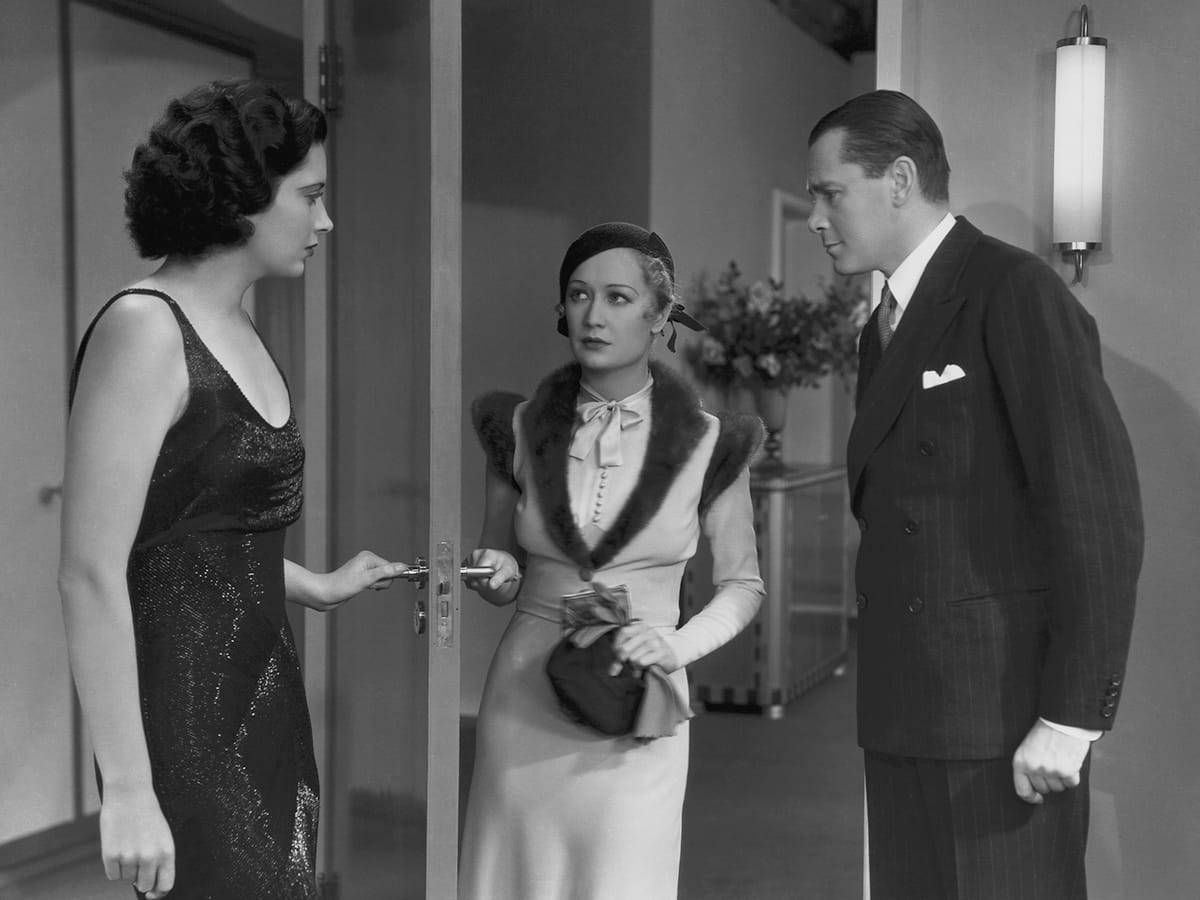 |
Kay Francis and William Powell in Ladies' Man |
Cast: William Powell, Kay Francis, Carole Lombard, Olive Tell, Gilbert Emery, Martin Burton, John Holland, Frank Atkinson, Maude Turner Gordon. Screenplay: Herman J. Mankiewicz, based on a novel by Rupert Hughes. Cinematography: Victor Milner. Costume design: Travis Banton. Music: Karl Hajos, Herman Hand, John Leipold.
With his receding hairline, big nose, and dubious chin, William Powell has always seemed to me an unlikely leading man, but he made quite a go of it teaming with actresses like Myrna Loy, Kay Francis, and Carole Lombard. But even Powell felt he was miscast as Jamie Darricott, the handsome gigolo of Ladies' Man who dines and wines the society matron Mrs. Fendley (Olive Tell), taking her, fashionably late, to the opera -- she muses that she's always wondered if Tosca really has a first act. He's performing a necessary service: Her banker husband, Horace (Gilbert Emery), is more devoted to making money than to being married, so even he tolerates Darricott's services -- at least for a while. Trouble starts when Rachel Fendley (Lombard), their daughter, takes a fancy to Darricott. Up to that point, Ladies' Man has been a passable sophisticated comedy of manners, but then Darricott meets Norma Page (Francis) and they fall in love. For a while the film turns into a romantic comedy tinged with farce, as Rachel tries to get Darricott away from Norma. And then it gets serious: Horace Fendley decides that he can't tolerate Darricott's involvement with both his wife and his daughter, and he threatens Darricott's life. This muddle of tones and genres is only made messier by miscasting, which extends beyond Powell's unsuitability for the role. Lombard tries at first to be suave and icy, affecting that hoity-toity mid-Atlantic accent actors used to resort to when playing uppercrust roles. Fortunately, she's allowed to loosen up in a scene when she gets drunk and confronts Norma and Darricott at a nightclub. It's not a good drunk scene, but at least it's closer to the free and funny Lombard we cherish. Francis comes across better in a thankless role: She has to pretend to be put off by Darricott's being a gigolo, but then be swept off her feet by him overnight. In short, it's a movie that a lot of top talent, including screenwriter Herman J. Mankiewicz's, isn't strong enough to save.



















